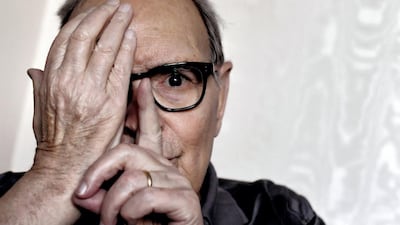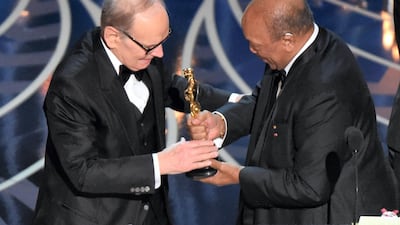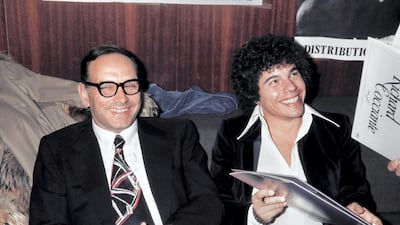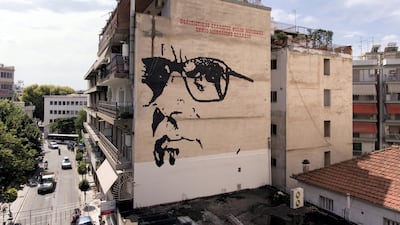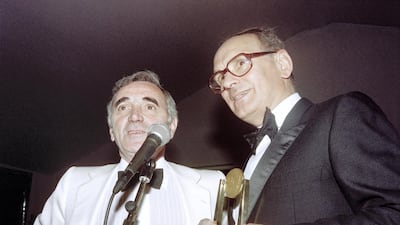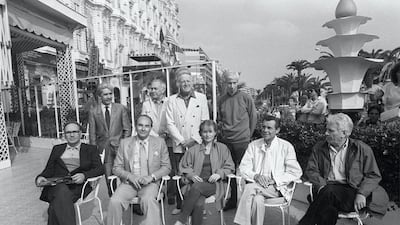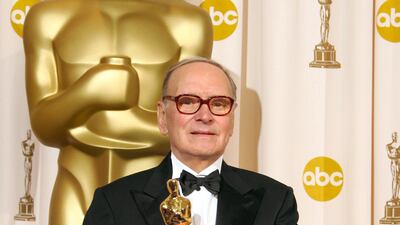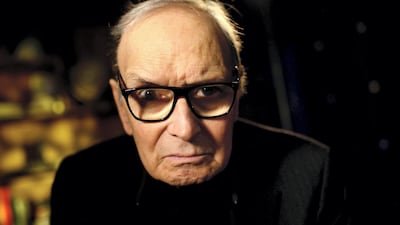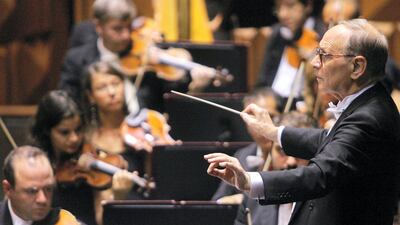Italian composer Ennio Morricone has died aged 91. He was best known as the creative mastermind behind many famous Spaghetti Western soundtracks, including the score to 1966's The Good, the Bad and the Ugly.
He died in Rome, Italy, on July 6, after suffering complications from a fall last week, when he he broke his femur.
Morricone's family friend and lawyer Giorgio Assumma confirmed the news on Monday morning, saying in a statement translated from Italian that a private funeral would be held, "in respect of the humility that has always inspired his life’s work".
He was behind the scores of more than 500 films throughout his career. One of his most famous was for Cinema Paradiso, with the film winning an Oscar and a Golden Globe and Morricone scoring a Bafta for the score. Despite his Hollywood success, however, Morricone never moved to Los Angeles, choosing to live in Italy his entire life.
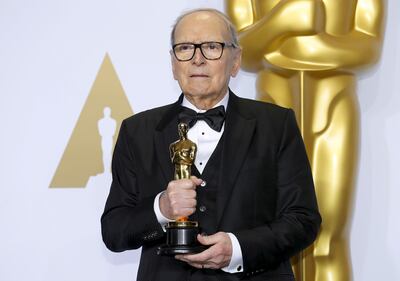
He won two Academy Awards, an Honorary Academy Award in 2007 and Best Original Score in 2016, for Quentin Tarantino's The Hateful Eight. In total, he worked on more than 70 award-winning films and he was personally nominated seven times.
Known as "The Maestro", Morricone was a master of building tension through his soul-stirring and melodious compositions. His spectral, guitar-driven score for The Good, the Bad and the Ugly has become emblematic of what a standoff in a Spaghetti Western sounds like ever since it was featured in the Sergio Leone film. His soundtrack for the film was arguably one of his most famous works, along with his scores on other films by the Italian director including For a Few Dollars More, and A Fistful of Dollars.
Morricone first met Leone at elementary school in Rome. The two worked together on seven films.
“The music is indispensable," Leone, who died of a heart attack in 1989, once said of Morricone's compositions. "My films could practically be silent movies, the dialogue counts for relatively little, and so the music underlines actions and feelings more than the dialogue. I’ve had him write the music before shooting, really as a part of the screenplay itself.”
As much as Morricone's works defined the soundscape of the Spaghetti Western genre, the Italian composer was not a fan of the term, saying that it represented only a minute fraction of his career.
Morricone has scored the tense, the light-hearted and the dramatic, working across genres from Gillo Pontecorvo's 1966 war drama The Battle of Algiers to Pedro Almodovar's 1989 dark romantic comedy Tie Me Up! Tie Me Down! , Brian De Palma's 1987 crime drama The Untouchables and Warren Beatty's 1998 romance, Bulworth.
In October 1956, Morricone married fellow musician, Maria Travia. The couple had three sons and a daughter: Marco, Alessandra, Andrea and Giovanni Morricone. Andrea and Giovanni both work in the film industry, Andrea as a conductor and film composer, and Giovanni as a filmmaker.
